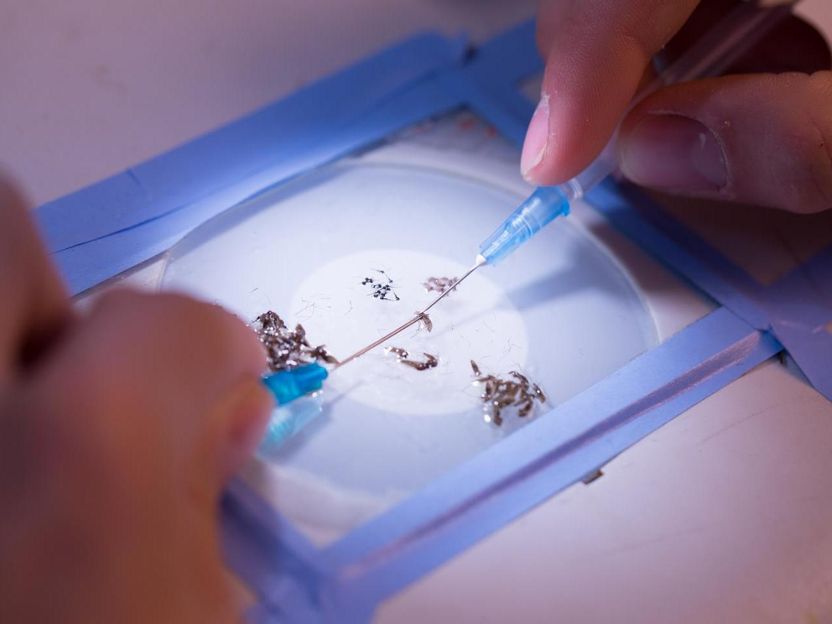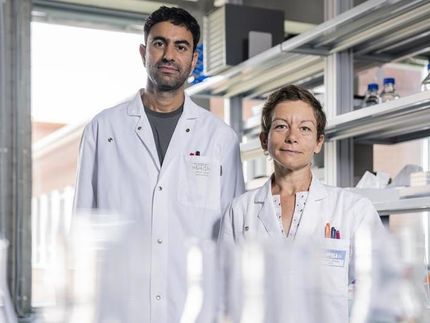Essential interaction between malaria parasites and liver cells
Advertisement
Scientists at the Center for Infectious Disease Research recently uncovered a critical piece in the puzzle of how malaria parasites infect their host. The work, recently published in Science Magazine, reveals the details of how the malaria parasite invades its initial target organ, the liver. Without infection of the liver, the parasites cannot multiply or spread to the blood. Infection of the blood causes illness, spread of the disease, and, ultimately, death.

A scientist at Center for Infectious Disease Research dissects malaria infected mosquito.
Center for Infectious Disease Research
"This discovery is significant because it reveals a vital interaction between the malaria parasite and the person it infects. Before, we knew little about that interaction. The molecular details of our discovery will facilitate the design of new drugs and new vaccines," said Alexis Kaushansky, PhD, an assistant professor at the Center for Infectious Disease Research.
The discovery was made through collaborative research between the laboratories of Drs. Stefan Kappe, PhD, Noah Sather, PhD, and Alexis Kaushansky, PhD. The combination of cross-disciplinary, collaborative research and technological approaches has allowed this type of discovery to be possible. As Louis H. Miller, Head of Malaria Cell Biology Section at the National Institutes of Health notes, "The findings on the liver receptor EphA2 for malaria parasite sporozoite invasion of liver cells is a critically important advance and might allow us to devise new strategies to block parasite infection."
The Center has pioneered the systems biology approach to research, which utilizes state-of-the-art technology, fosters collaboration between scientists, and allows for a comprehensive understanding of the interactions between pathogens and their hosts. This method provides an essential path the transformative advances needed to prevent and treat the world's deadliest infectious diseases.
Original publication
"Malaria parasites target the hepatocyte receptor EphA2 for successful host infection"; Science

























































